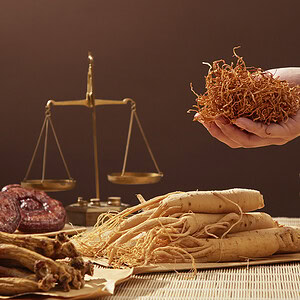Berries are a great choice if you want to eat local, seasonal, British produce in the summer months. Here’s everything you didn’t already know about berries!
1. Nutrient rich
Whether you grow your own, pick your own, or buy from the shops, berries (and cherries) contain a wide range of nutrients including vitamins C and small amounts of vitamin A.
They are also good sources of potassium — and a great source of anthocyanins.
These are types of flavonoid that are responsible for the red or blue colour in berries, and which have been linked to various health benefits.
2. Health benefits of anthocyanins
In one study of 2,000 healthy women, it was found that those who consumed the highest levels of anthocyanins were less likely to suffer from chronic inflammation.
In another separate study on rats, it was found that after two months of a diet supplemented with blueberries and strawberries, there was an improvement in the brain’s ability to clear accumulated toxic proteins. Research is ongoing into whether such benefits could be observed in humans.
However, an epidemiological study of 2,800 people, looking at exposure to different nutrients over 20 years, found that low intake of anthocyanins from, for example, blueberries and strawberries, was associated with a four-fold risk of developing Alzheimer’s disease and related dementias.
This is supported by research elsewhere that has suggested increased consumption of anthocyanins can slow down cognitive decline.
An analysis of the US Nurses’ Health Study (involving 121,700 female registered nurses) found that increased consumption of blueberries and strawberries appears “to slow cognitive decline in older women” and that “a greater intake of anthocyanidins [the sugar-free counterparts of anthocyanins] and total flavonoids was also associated with reduced cognitive degeneration”.
The researchers observed that women who had a higher berry intake experienced delayed cognitive ageing by up to 2.5 years — although while the analysis did control for other factors, the authors cautioned that they could not rule out that other lifestyle choices may have influenced the findings.

3. Cleaning up debris
However, it is suggested that any benefits may result from berries activating the brain’s natural “housekeeper” mechanism; cleaning up and recycling toxic proteins that are linked to age-related memory-loss and mental decline.
One study looked at cells called microglia, which remove and recycle biochemical debris. As we age, microglia become less efficient or can become over-activated, causing damage instead.
However, looking at mouse brain cells, researchers said that polyphenolics (compounds such as tannins) from berries may have a “rescuing effect” on microglia.
4. Low-sugar sweetness
Considering that berries are also low in sugar compared with many fruits, these are all good reasons to enjoy them while they are in abundance.
There are even plenty of ways to use them beyond just desserts.
Here are some ideas for savoury and breakfast berry dishes:
- Chop and add to tomatoes and basil on a bruschetta
- Mix with salad leaves and goats cheese
- Serve with Parma ham and melon
- Add to oats and nuts to make a delicious muesli or overnight oats
- Chop fine, season and add to olive oil to make a vibrant dressing for salad or salmon
- Blend with yoghurt and milk, or just yoghurt, and ice cubes to make a refreshing drink
- Add them to these banana-chia pancakes

5. Freezing berries
And if we have more than we know what to do with, they can be frozen and stored for future use.
Other than being washed, berries do not need any special preparation before freezing.
Research has found that there may even be health benefits to freezing some types. One study found that freezing blueberries resulted in an improvement in the availability of anthocyanins.
So, it does seem that these genuine ‘sweet treats’ from nature’s store could be a healthy addition to any shopping list.
Enjoyed this article?
Here’s everything you need to know about courgettes (zucchinis)
For articles and recipes subscribe to Optimum Nutrition
Discover our courses in nutrition






